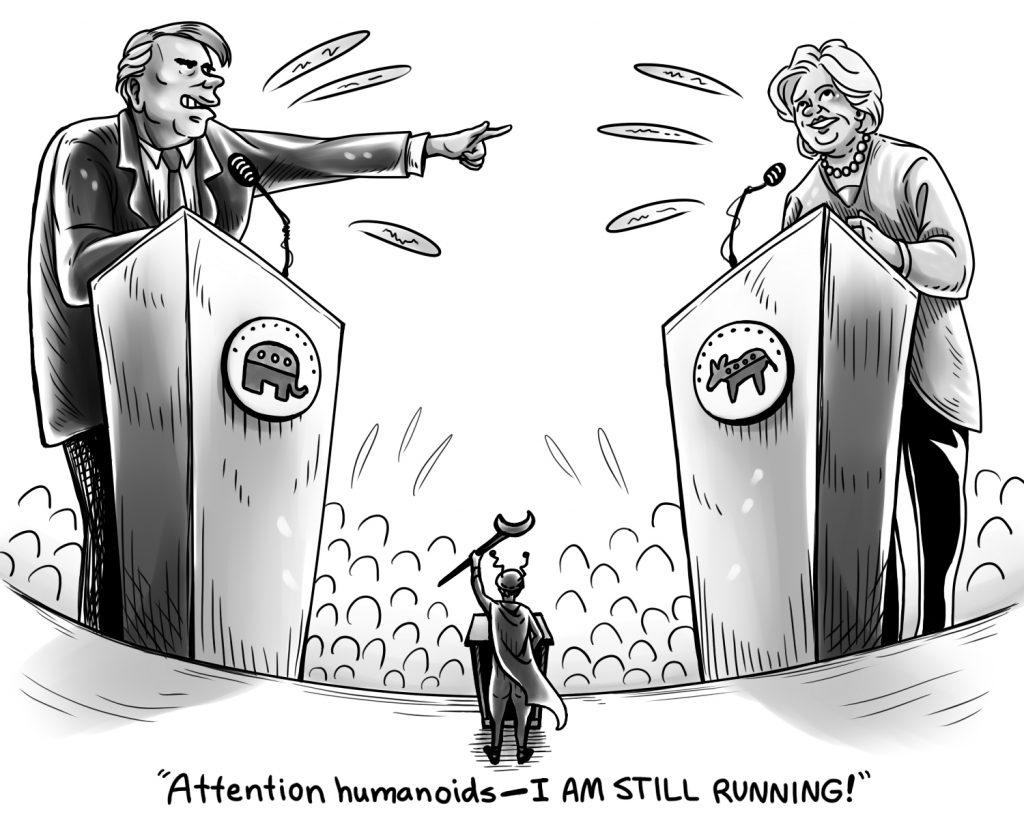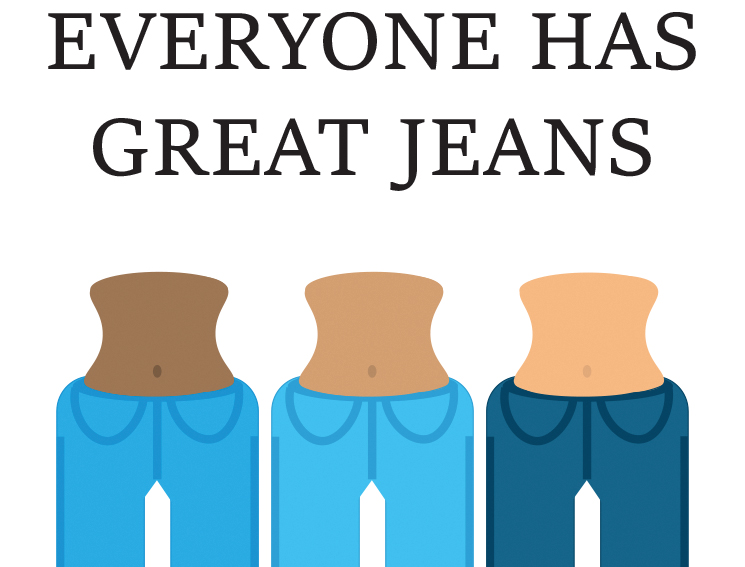By Monica Mitrovic
Contributing Writer

Registered voters heading to the polls Nov. 8 might feel starved for choices as they enter their ballots. But Americans aren’t limited to Republican nominee Donald Trump and Democratic nominee Hillary Clinton. Americans have the option of voting for lesser known third party candidates, such as Green Party presidential nominee Dr. Jill Stein and Libertarian Party nominee Gary Johnson.
Stein gained support among environmentalists and millennials, inheriting some of Bernie Sanders’ supporters, according to The Guardian. Her campaign focused on environmental and renewable energy. Stein joined the protest against the Dakota Access oil pipeline construction, which would disturb sacred Native American grounds and possibly pollute water.
Stein’s actions spoke as loud as her words, which demonstrated to her supporters the lengths she will go to defend her beliefs, her ideology and the American people.
Another viable option for president is Johnson, who served as governor of New Mexico from 1995 to 2003.
Johnson greatly reduced government spending and reduced the state’s budget deficit, according to presidential-candidates.org. This should interest Americans worried about government spending and the national debt.
Some argue Johnson is more fit to be president than Stein, who lost two gubernatorial elections in Massachusetts, because he has more government office experience.
But those aren’t the only third party candidates. Others include Chris Keniston, the Veterans Party nominee, and Darrell Castle, the Constitution Party nominee.
Keniston’s campaign focused on the creation of jobs and repealing the 16th Amendment, which would abolish federal income taxes, according to presidential-candidates.org.
Castle, an attorney from Tennessee, strives to apply a different financial system and see the U.S. leave the United Nations, charting a new path of success for the country.
Historically, the U.S. has always been, in essence, a two-party system: Federalists versus Anti-Federalists, Federalists versus Democratic-Republicans, Democratic-Republicans versus Whigs and, currently, Democrats versus Republicans.
David Griggs, a Brookhaven College government professor, said the two-party system is one of the reasons our Constitution and form of government has lasted as long as it has.
“We have had a strong twoparty system in our country, and we still do,” Griggs said.
However, the Founding Fathers, such as George Washington, John Adams and Thomas Jefferson, adamantly opposed a two-party model, according to presidentialcandidates.org.
There have been instances in which people have run as thirdparty candidates and achieved great success, considering the system favors the two-party candidates.
Griggs said Theodore Roosevelt’s run as the Bull Moose Party’s candidate was extremely successful. After he failed to win the Republican nomination, Roosevelt created the Bull Moose Party in 1912 and received a higher percentage of the popular vote than the Republican nominee and incumbent President William Howard Taft.
In 1992, Ross Perot ran as an independent against George H. W. Bush and Bill Clinton. Griggs said 19 percent of the electorate voted for Perot. In 1996, Perot ran against Clinton again, as a third party candidate for the Reform Party, but didn’t receive many votes.
George Wallace’s campaign in 1968 gained supporters for his American Party but could have potentially helped elect Richard Nixon, Griggs said.
Many argue that a vote for a third party candidate is wasteful or an act of protest. But there’s no denying that third party candidates can have a huge effect on close elections, especially in the 2016 election, when the dominant candidates have unfavorable poll numbers.
However, the American people shouldn’t have to settle for the dominant candidates. Third parties should be able to slowly cement their own places in U.S. history and provide fresh, new ideas that will benefit our future and provide citizens with alternative choices.
“I just hope students will study the issues and learn more about what’s going on than just [focus on] the personalities, who slammed who, the latest leak [or] the latest allegation or tape,” Griggs said.







